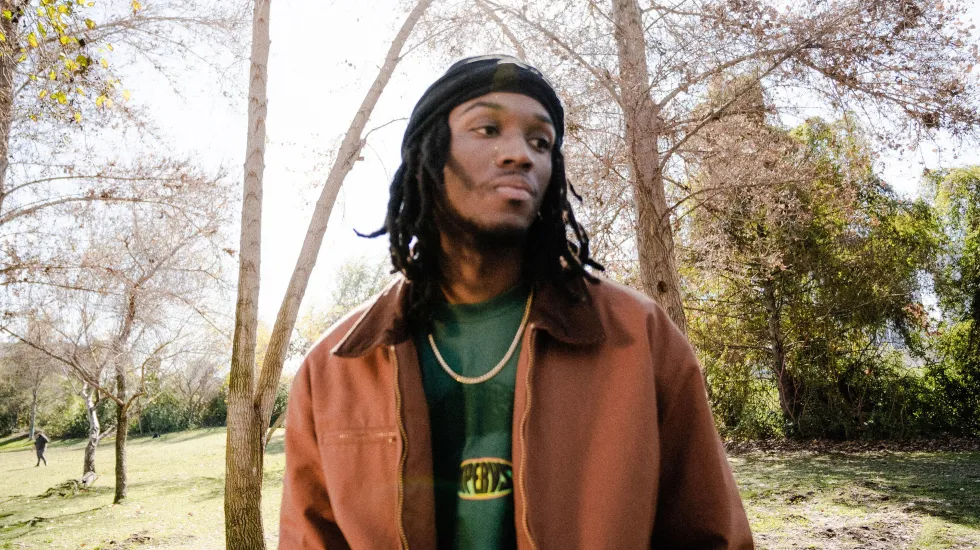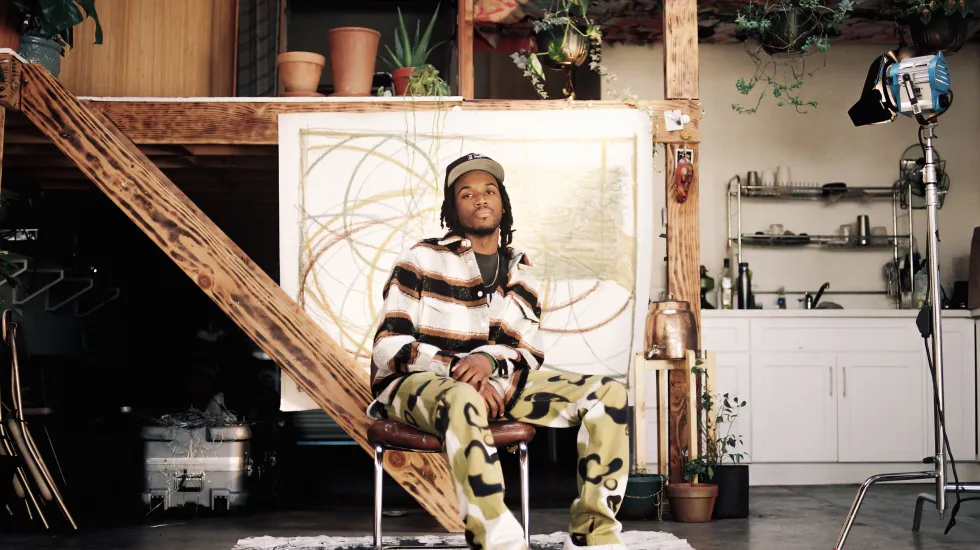
Saba’s music captures life’s complete spectrum: joy, sadness, love, heartbreak, victory, loss, poverty, wealth and everything in between.
Raised in the Austin neighborhood, Saba — born Tahj Chandler — refined his craft as a writer and performer at local writing workshops and open mics. That organic rise, and lyrics that explore the dynamic between the brightest and the darkest moments in his life, have attracted a fanbase that connects to his music on a practically spiritual level.
Saba’s 2018 album “Care For Me” was the first to earn him nationwide critical acclaim but was influenced by tragedy: the stabbing a year prior of his cousin and collaborator, John Walt. With Walt, Saba helped form the music collective Pivot Gang. After his cousin’s death, Saba and other members of the group launched the annual John Walt Day concert and used proceeds from the show to fund a John Walt Foundation that aims to help young artists and families in Chicago.
SABA
With femdot., Amindi, MFnMelo
When: 6:30 p.m. Thursday
Where: Aragon Ballroom, 1106 W. Lawrence Ave.
Tickets: $23 (17 and older)
Info: concerts.livenation.com
Saba’s new follow-up, “Few Good Things,” was preceded by yet another loss, this time the shooting of his touring DJ and producer SqueakPIVOT. Saba wrote an open letter that accompanied the release in which he said his album, and Black culture in general, was much more than just trauma. “Our culture is not clickbait,” he stated in bold letters.

Saba, who has moved to Los Angeles, spoke ahead of his return to Chicago for a May 5 show at the Aragon Ballroom.
Q. Your latest album, “Few Good Things,” is nostalgic about your time here. Why did you decide to move?
A. The decision to start spending more time in Los Angeles was more based in career, you know? Just being where I felt like I needed to be to make a couple of things happen as far as the album. I still spend a lot of time in Chicago. All my family, all my people are still in Chicago. So you know, there’s some months when I’m in Chicago more than in L.A.
Q. Along with the album, you made a short film that shows a multi-decade span of Chicago neighborhoods, redlining, and what happened to Black homeowners. Your grandfather narrates. Why did you want to make a film about this specific story?
A. I’m from a pretty close-knit family, and I realized that I didn’t know much about it. I didn’t really have a story, and I think so much of identity comes from history. You know, you find out where your people are from and what that experience is like, and then you feel a stronger connection to yourself because that’s your genetic makeup. So for me, that’s what “Few Good Things” kind of experienced. When I was writing on a lot of those songs, I was talking to my granddad and I was getting some of those stories that I had never heard. So when we were putting the short film together, it just made sense to, like, try to create like the embodiment of those stories to tell that story.
Q. One of the featured artists on your album is G Herbo, which caught some fans outside of Chicago by surprise because of the different styles of music you make. He makes drill, which has grown in popularity from this hyperlocal subgenre to become this global phenomenon in mainstream hip-hop. But it’s also been criminalized by government officials since the beginning because of its violent lyrics and ties to gangs. Was there any significance for you to connect with a pioneer like Herb in terms of helping shed the stigma attached to drill?
A. I’m from Chicago. If you go back to 2014 to some of my first interviews, I always credited and showed love to the drill scene. Because to me, it wasn’t that different than what we were doing. And what I always described it as was the perspective was different. It’s like, I can look at this and be like, “This is what I saw.” They can say, “This is what I did.” And I think, to me, that never felt that different to me. It’s describing the same city, it’s describing the same Chicago and the same heartbreak and the same, you know, the same story.
So to me, Herb has always been — you know, at the end of the day rap is rap, and that man can rap.
Alejandro Hernandez is a Chicago freelance writer.







